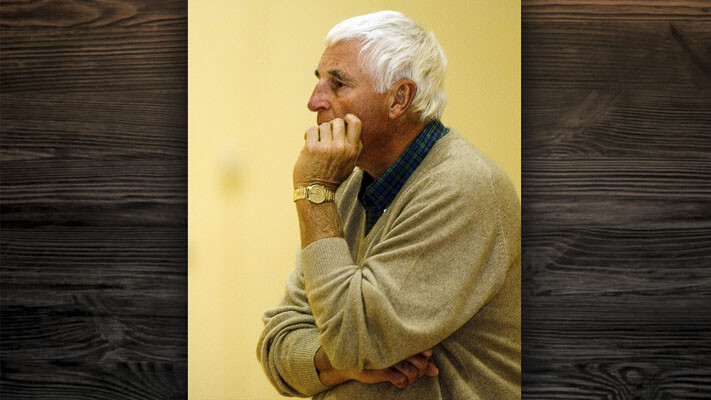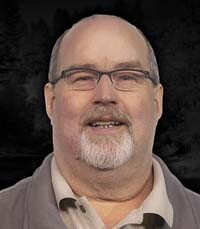
Clark County Today Editor Ken Vance reflects on the loss of legendary college basketball coach Bob Knight
Ken Vance, editor
Clark County Today
My friends and family will tell you, one of my most-often-spoken statements is this: “I try very hard not to judge others and I ask others not to judge me.’’ Unfortunately, I feel like the number of us who attempt to live by that creed is a group growing smaller and smaller by the day.

I’m thinking of this because of this week’s death of legendary college basketball coach Bobby Knight, who died at the age of 83 surrounded by family and friends in Indiana. During his collegiate coaching career, Knight won 902 games, which was the most ever at the time of his retirement in 2008. He won three national championships during his tenure at Indiana University and also won a title as a player at Ohio State University. His 1976 Indiana team didn’t lose a game. His 1975 Indiana team only lost one game and likely would have also gone undefeated if it wasn’t for a broken left arm to standout forward Scott May.
Many columns or stories could be written about Knight’s accomplishments as a basketball coach. He created the motion offense, a complicated system built on seven principles that required players to read the actions of the defense to determine their own actions on cutting and attacking off screens and motion. I attempted to implement Knight’s motion offense at the high school level and was very unsuccessful. It was so simple and yet so complicated at the same time. As many columns or stories can be written about the legion of former players and coaches who Knight influenced in his storied career. He leaves behind a great number of folks who would take a bullet for the guy, or at least donate a major organ.
A seemingly equal amount of columns or stories could be written about Knight’s many flaws and imperfections. He had a horrible temper. He often bullied and mistreated those around him, including those he loved and cared deeply for. There is a grainy video showing Knight putting his hands on Indiana player Neil Reed during a 1997 practice. At Indiana University, he also allegedly grabbed the arm of a student he felt was being disrespectful to him. He berated sportswriters and game officials, including one famous incident when he hurled a chair across the court during a break in a game.
A friend of mine once attended a coach’s clinic in Portland at which Knight spoke. During Knight’s time on stage, he repeatedly patronized two female coaches seated near the front. During a break, the women went to event organizers and complained about how they were treated by Knight. When Knight noticed this, he yelled at the organizers to give the women their money back and tell them to get the hell out of here. Another friend of mine once rode in an elevator with Knight at the NCAA Final Four. My friend asked Knight who he thought would win the championship, to which Knight said he had no opinion. My friend then asked incredulously how Knight could not have an opinion, and the burly 6-foot-5 Knight turned, looked my smaller friend in the eye and said sternly, “that’s what I said.’’
One of my favorite books was A Season on the Brink, written by John Feinstein, who followed Knight and the Indiana Hoosiers during the 1985-86 season. Knight granted Feinstein unprecedented access to the Indiana basketball program as well as the coach’s personal life. After the book came out, Knight was furious with Feinstein, claiming among other things that the coach’s use of profanity was fabricated by the author. Again, Knight’s crude behavior and vulgar language didn’t prevent me from appreciating his brilliance.
Enough about what this column isn’t about and more about what it is about. How should we feel after the death of someone like Knight – equal parts good and equal parts bad? I would hope we would feel the same as when they were alive. On Thursday’s edition of ESPN’s Pardon the Interruption, co-host Tony Kornheiser said of Knight, “I won’t make him a villain but I can not simply make him a hero.’’
While Knight was in an elite class as a basketball coach, he was far from alone as a flawed human being. If truth be told, aren’t we all flawed and imperfect? Granted, if I were Neil Reed, or Neil Reed’s father, I might have a more difficult time not judging Knight’s flaws or imperfections. I want to believe I could still forgive, even if it was harder to do so.
Maybe I’m just getting old. Maybe I have a selective memory. Maybe it’s what they call recency bias. But, it sure seems to me that we’re less and less willing to accept the flaws and imperfections of others these days while also being less and less willing to celebrate the endearing qualities of those same individuals.
Now at the age of 60 years, I have suffered many losses of those close to me. Both my parents are gone, not to mention all of my grandparents. I have just one aunt (of many aunts and uncles) who is still alive. I’ve reached the point in life where that list is only going to grow. And, in addition to that, my own mortality stares me in my face. I’m not losing any sleep over how I will be remembered. I’m confident those who know me well will acknowledge both my flaws and my endearing qualities, however many or few.
What’s more important to me is how we treat others while we are still alive. I’m not suggesting anyone should get a free pass. We are each to be held accountable for our actions. But, just as we should seek not to be judged, we should also seek not to judge others. Rest in peace Robert Montgomery Knight.
Also read:
- Opinion: OIC tells consumers not to pay for ‘insurance’ you won’t likely benefit from: Does that include WA Cares?Elizabeth New (Hovde) of the Washington Policy Center believes you should consider yourself warned by the Office of the Insurance Commissioner about WA Cares and its maybe-only benefit.
- Opinion: Same road, different speed limit?Target Zero Manager Doug Dahl addresses a question about speed limit signs going into and leaving town.
- Opinion: Hiding the growing cost of the Interstate Bridge replacementJoe Cortright of the City Observatory addresses the rising cost of the Interstate 5 Bridge replacement project.
- Letter: ‘This election I am NOT voting for Greg Cheney’Clark County resident Wynn Grcich shares her thoughts on Rep. Greg Cheney and the issue of fluoridation in area drinking water.
- POLL: Should biological males who identify as females be allowed to compete in athletic events against biological females?Should biological males who identify as females be allowed to compete in athletic events against biological females?










